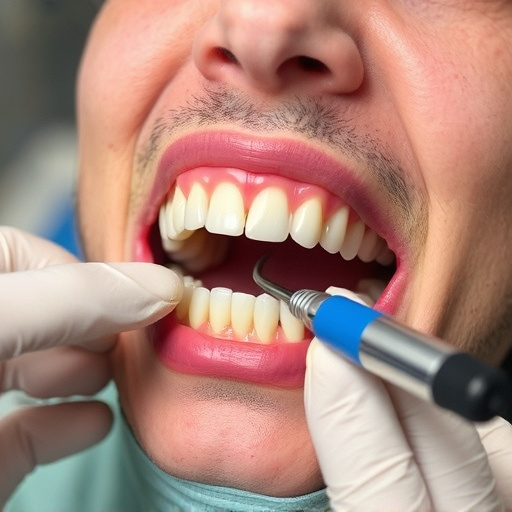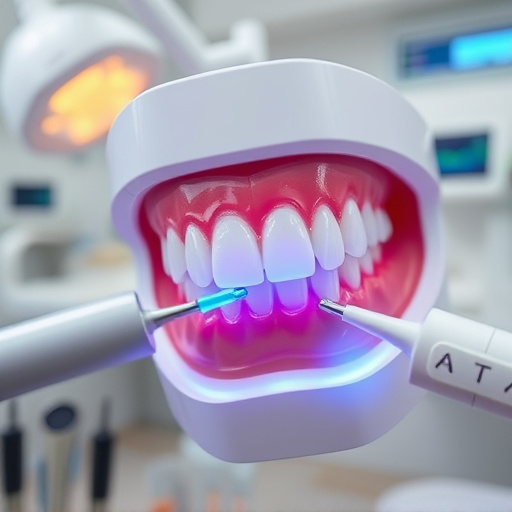Dental sealants for teeth offer a non-invasive, preventive care solution that protects molars and premolars from plaque, food particles, and bacteria, significantly reducing the risk of tooth decay and cavities. Lasting several years, these sealants are applied without drilling and provide a conservative approach to oral health maintenance compared to fillings or bonding. Proper oral hygiene, including brushing with fluoride toothpaste, flossing, and limiting sugary/acidic foods, ensures their effectiveness. Regular dental check-ups are crucial for monitoring and reapplying sealants as needed.
Dental sealants for teeth present a non-invasive treatment option, offering significant benefits for maintaining oral health. This protective coat applies a thin layer of resin to teeth, sealing out bacteria and food particles, thus preventing tooth decay. Unlike traditional fillings, sealants are virtually invisible and preserve the natural structure of teeth. By understanding how dental sealants work and their numerous advantages, you can make an informed decision about this effective, gentle approach to oral care.
- Understanding Dental Sealants: A Protective Coat for Teeth
- The Benefits of Non-Invasive Dental Sealant Treatment
- How to Care for Teeth with Dental Sealants
Understanding Dental Sealants: A Protective Coat for Teeth
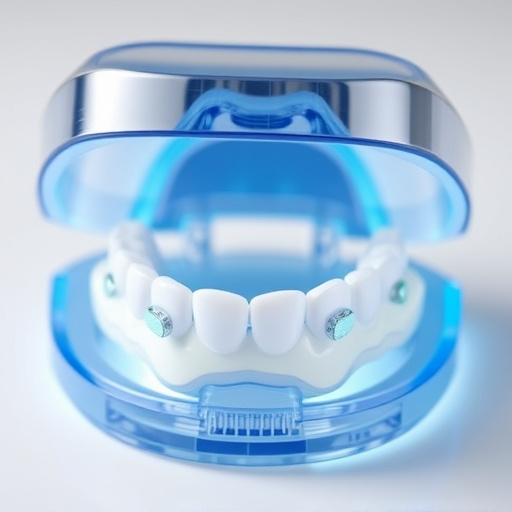
Dental sealants for teeth are a non-invasive treatment option that acts as a protective coat for teeth. These sealants are typically applied to molars and premolars, particularly in children, but adults can also benefit from them. They create a barrier over the tooth’s surface, preventing plaque, food particles, and bacteria from settling in hard-to-reach areas. This simple yet effective process significantly reduces the risk of tooth decay and cavities.
By applying dental sealants, dentists offer a form of preventive care that can last for several years. Unlike restorative dentistry procedures like cosmetic fillings or dental bonding, which involve more extensive work, sealants are a conservative approach to maintaining oral health. They are easily applied in a dentist’s office and don’t require any drilling or removal of tooth structure, making them an excellent choice for those looking to avoid more complex treatments.
The Benefits of Non-Invasive Dental Sealant Treatment
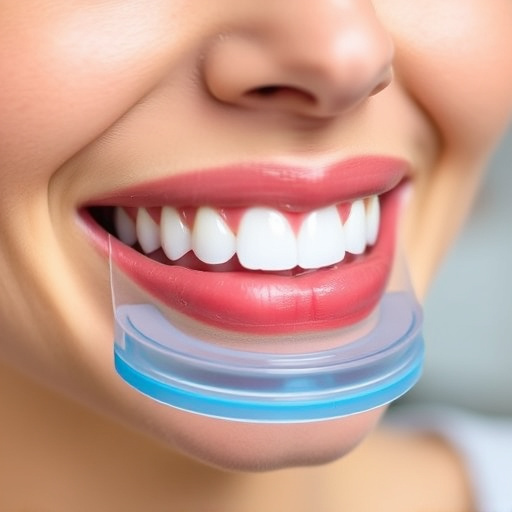
Dental sealants for teeth offer a non-invasive treatment option that can significantly enhance oral health and hygiene. One of the key benefits is their ability to protect against tooth decay without the need for drilling or extensive procedures, unlike traditional dental fillings. By applying a thin coating to the chewing surfaces of back teeth, sealants create a physical barrier against food particles and bacteria, effectively reducing the risk of cavities forming.
This preventive approach not only saves time and money in the long run by avoiding more complex treatments such as dental crowns but also contributes to maintaining the natural structure of the teeth. Moreover, the application process is quick and comfortable for patients, making it an ideal solution for individuals seeking a less disruptive way to safeguard their oral health.
How to Care for Teeth with Dental Sealants
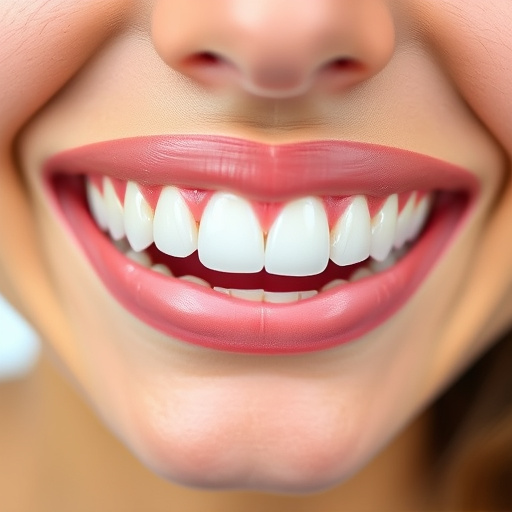
Proper care is essential to maintain the effectiveness of dental sealants for teeth. After receiving dental sealants, it’s crucial to maintain a strict oral hygiene routine. This includes brushing twice daily with fluoride toothpaste and flossing regularly to remove plaque buildup, which can weaken the sealant bond. Using soft-bristled toothbrushes and gentle flossing techniques helps prevent damage to the sealed surfaces.
Additionally, limiting sugary and acidic foods and drinks is vital, as these substances can erode the protective sealants over time. Regular dental check-ups at a family dentistry or restorative dentistry clinic are necessary to monitor the condition of the sealants and ensure they remain intact. During these visits, your dentist may also apply fresh coats of sealant as needed to maintain optimal oral health.
Dental sealants for teeth represent a significant advancement in non-invasive treatment options, offering a protective coat that can prevent cavities and preserve oral health. By seamlessly integrating into the natural structure of teeth, these sealants provide long-lasting protection without the need for drilling or extensive procedures. With proper care, including regular brushing and visits to your dentist, dental sealants can safeguard your smile for years to come, ensuring a healthier and more confident you.









